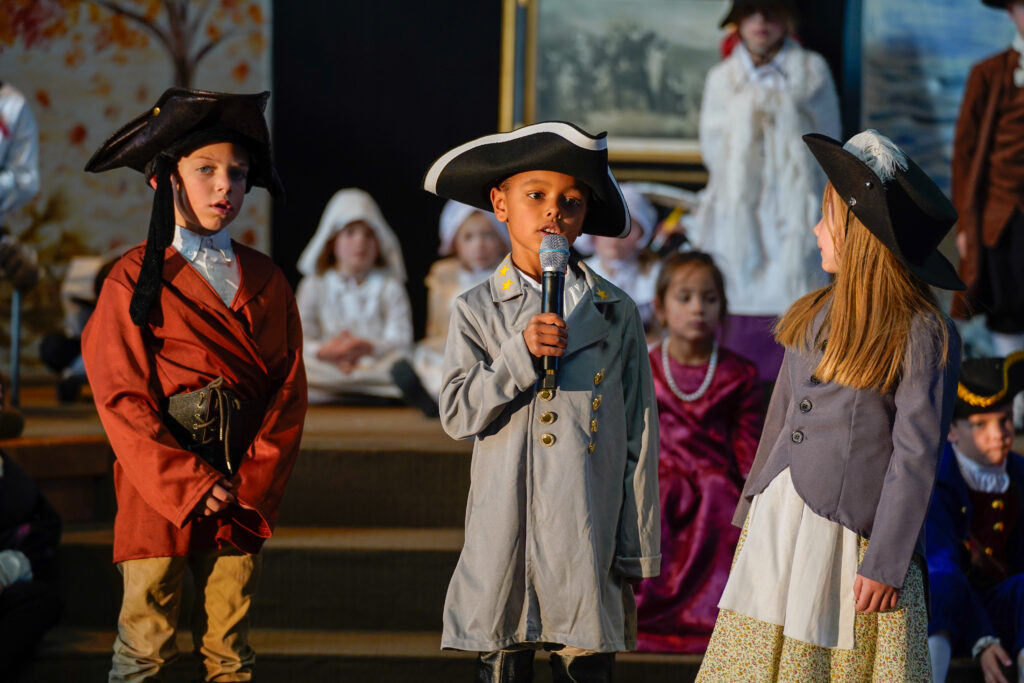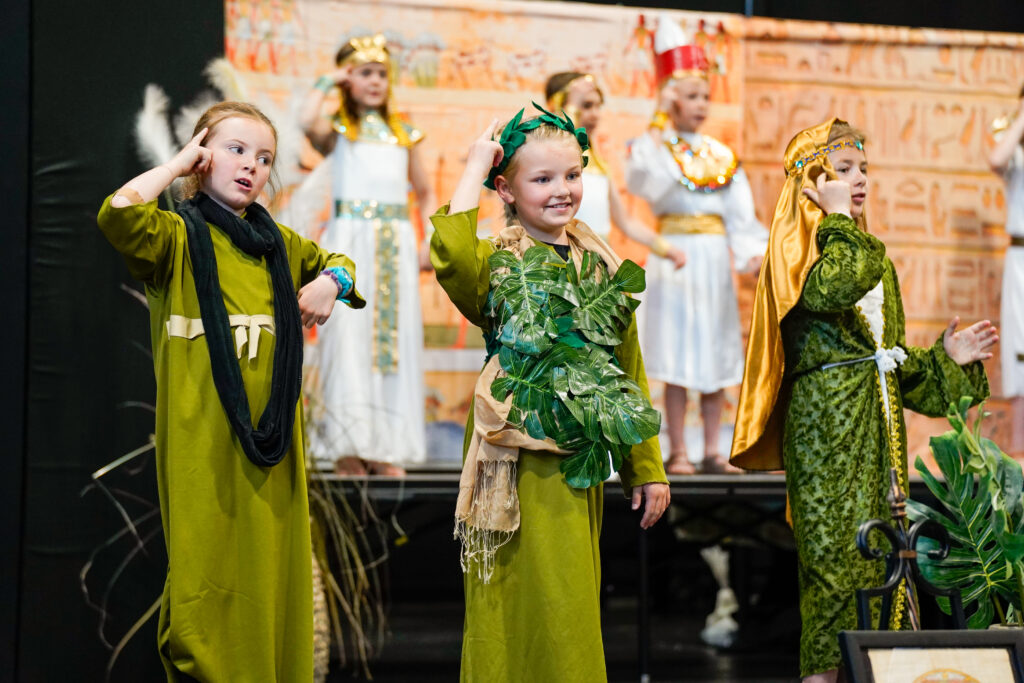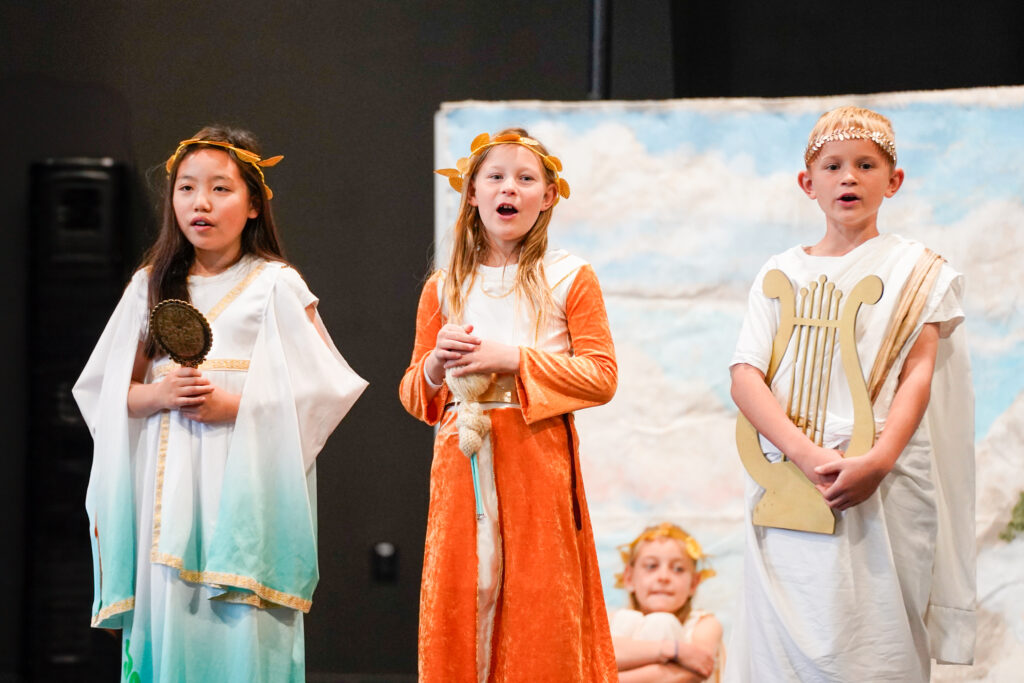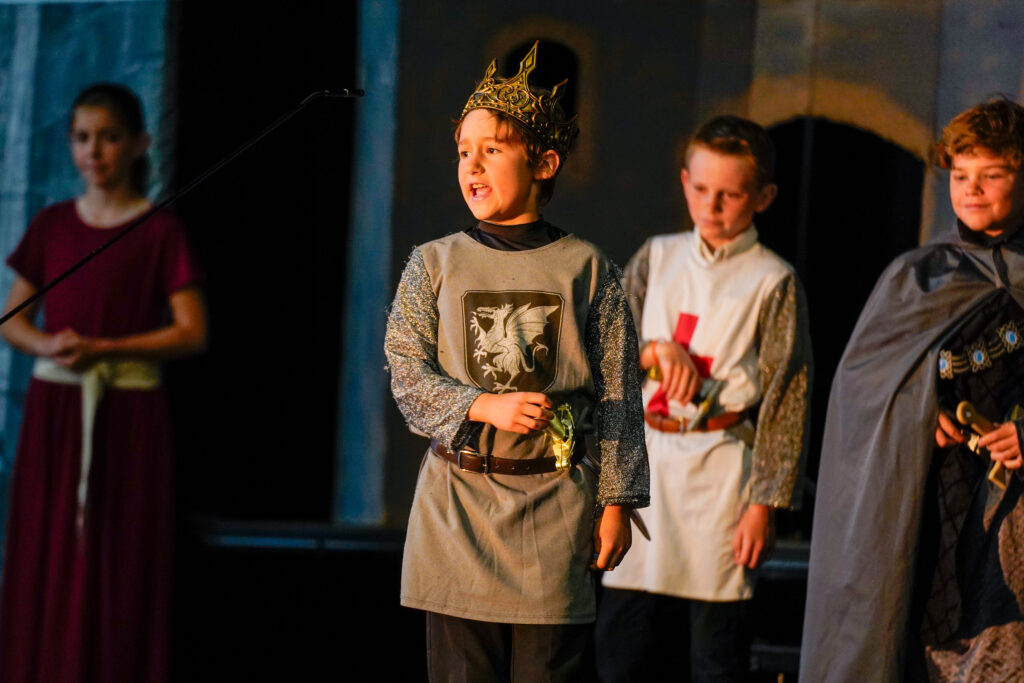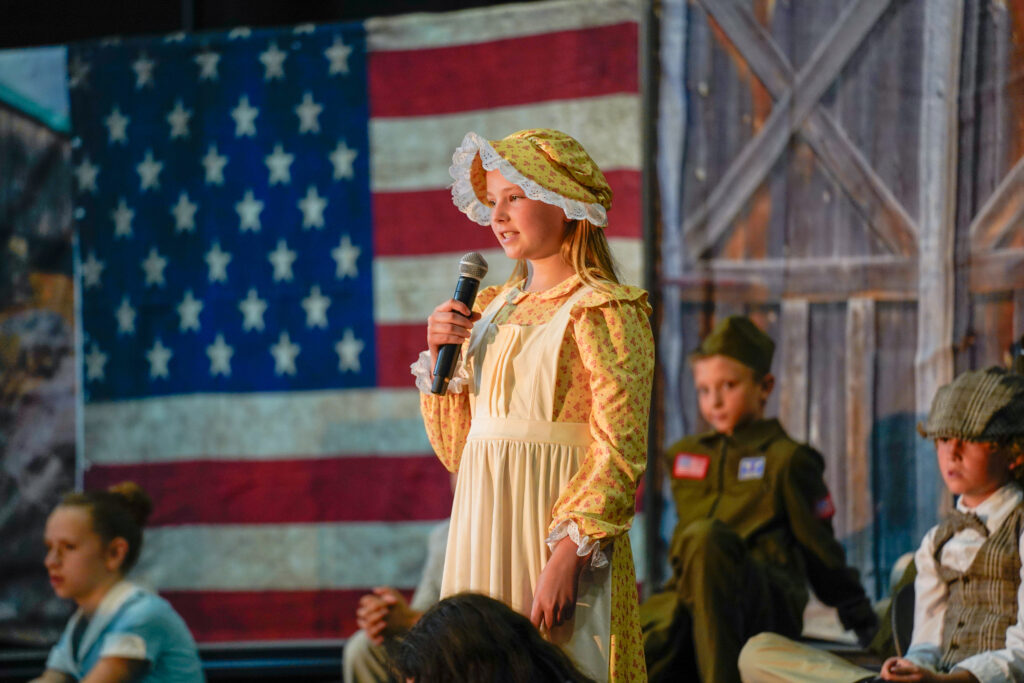Kindergarten students at Arma Dei Academy conduct a broad survey of the Bible. Phonics, cursive, and reading are a central focus, alongside math skills.
Kindergarten students at Arma Dei Academy conduct a chronological survey of the Bible through the Old and New Testaments, weaving in history from the ancient world as well.
Bible
Old Testament
- Creation
- Adam and Eve
- Noah and the flood
- The tower of Babel
- Abraham and Sarah
- Isaac, Jacob, and Joseph
- Moses and Egypt
New Testament
- Life and Ministry of Jesus
- Holiday narratives: Christmas and Easter
Each subject is taught from a biblical perspective at Arma Dei Academy. While each day opens with prayer and a formal study of Scripture, biblical discussion is not limited to a particular class period. Scripture memory is a critical component of the curriculum.
Character Traits
Attentiveness, Obedience, Truthfulness, Orderliness, Gratefulness, Forgiveness
Students study these six traits through Bible verses, songs, poetry, and stories that help them understand and build these virtues.
Logic of English: The Logic of English is a systematic, multi-sensory approach to learning how to read, spell, and write. In Foundations A & B students gain phonemic awareness, learn to read and write basic phonograms, and increase reading fluency through structured and playful activities.
Phonics, Spelling, and Reading Instruction: LOE Foundations A & B
- Phonemic Awareness
- Sounds of A-Z
- Short Vowel Words
- Long Vowels
- Schwa Sounds
- Multi-letter phonograms
- 7 Spelling Rules
- Composing phrases
Penmanship: The innovative Rhythm of Handwriting™ method, which is integrated within the Logic of English curriculum, aids students in developing fluid handwriting. Beginning in kindergarten, students learn cursive penmanship. Cursive is taught and practiced using a rhythmic approach which targets and develops both gross and fine motor skills and emphasizes uppercase and lowercase letter formation and spacing.
- Taught and practiced using a rhythmic approach
- Targets and develops both gross and fine motor skills
- Emphasizes uppercase and lowercase letter formation and spacing
Developing Roots KA & KB: A Singapore Approach
Developing Roots is a study of the concrete order and unchangeable nature of numbers, mathematical systems, and geometrical shapes. Students learn that God created these systems to help students in life. This study not only helps students to understand God’s immutable and logical character, but also enables them to better understand the order and logic in his creation.
Developing Roots uses a concrete-pictorial-abstract approach. Students are first shown physical objects that they can touch and handle to physically demonstrate mathematical concepts. Then, students use pictures and diagrams to work with mathematical concepts. Finally, students use abstract symbols such as numbers to represent mathematical ideas.
- Use concrete models to create a set with a given number of objects up to 20
- Use cardinal and ordinal numbers
- Use numbers to represent quantities
- Count up and back
- Count by 2s and 5s
- Compare and order sets
Introduction to Music
Kindergarten Music at Arma Dei Academy begins with an introduction to the three components of music: rhythm, melody, and harmony. Students will experience music through singing, rhythm clapping, chanting, and playing various instruments. Training of the student’s ear will occur through listening to sounds in the natural world and learning to sing on pitch.
Students will learn the 5 elements of shape (from Drawing With Children) and the 7 elements of art. Through drawing, painting, sculpture, and collage, students learn to follow guided art lessons and apply modeled techniques to make a work that is aesthetically pleasing. Students in kindergarten will be introduced to art through nature and biblically-themed works. They will learn to draw by observation, beginning to appreciate God as creator and designer of all good things.
Students who choose to enroll in our half-day Kindergarten Enrichment program are in for an adventure!
Through literature, art, nature studies, music, and poetry, students will explore the wonders of the world around them. In a typical day, you might find the students reading Marjorie Priceman's How to Make an Apple Pie and See the World, studying a map about where the baker travels to find his ingredients, then studying Van Gogh's Still Life With Apples. You can also frequently find the students exploring the open space around the school, searching for animal and plant life to add to their nature and art notebook. Fostering wonder and curiosity are hallmarks of Arma Dei’s enrichment program.
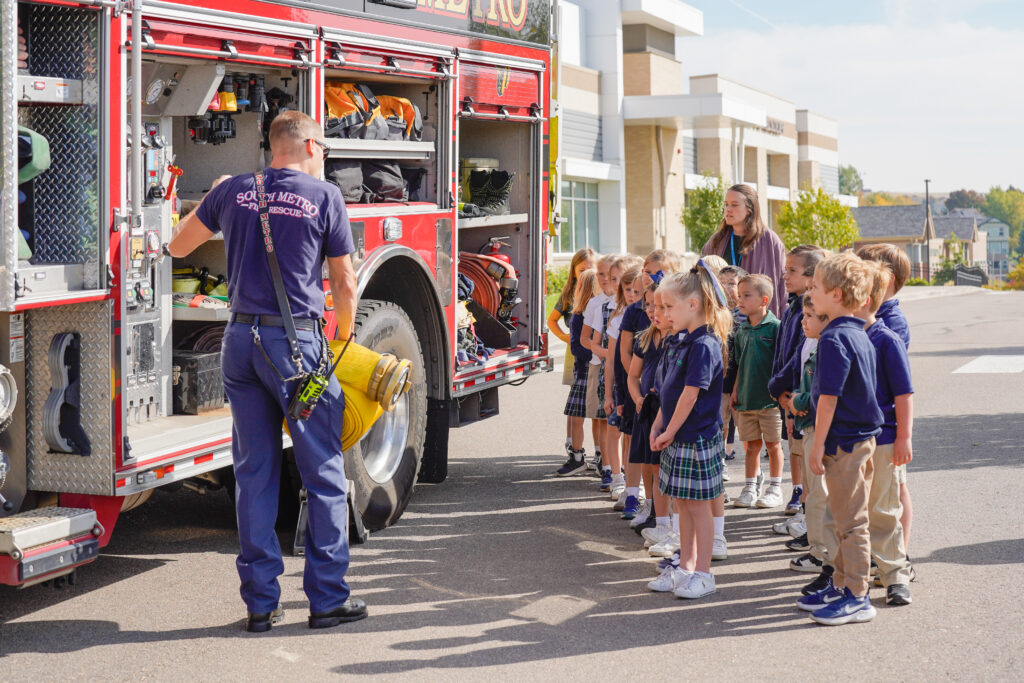
Kindergarten Enrichment
Arma Dei Academy’s Kindergarten is a half-day program. In addition, enrichment opportunities are available for AM Kindergarten students to extend their day to 3:35 p.m.
Space is limited.
Please contact Admissions with any questions.
